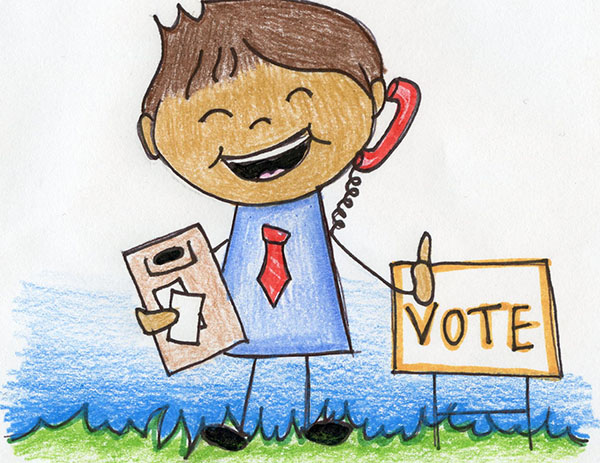Students find political voice through campaign interships
May 7, 2018
When you think about internships, what’s the first thing that comes to mind? Maybe you think about making copies, fetching coffee, or the social interactions. Some South students are involved in political internships, helping on the campaigns at the local level. Civics teacher Tara Tate expresses that this sort of internship goes beyond the stereotype of a typical “teenager job.”
Senior Emily Zimbler works for the Democratic Party of Evanston. She has interned for various candidates, but most recently for Daniel Biss’ campaign for governor. She says her inspiration to volunteer mainly came from the 2016 presidential election.
“My junior year I stopped doing sports,” Zimbler said. “At the same time, the election was starting and I realized that I wanted to do something about [Trump].”
Junior Sofia Snyder, currently involved in the JB Pritzker’s governor campaign, explains how her interests in political internships were because of her dad’s profession as a political consultant.
“I grew up in the [political] atmosphere,” Snyder said. “I remember when I was little going to campaigns with him, just like following the makeup artist around who did the makeup.”
Senior Austin Sulejmani interned for Bob Dold’s congressional campaign as a sophomore. Sulejmani says this internship gave him the opportunity to have conversations he was not accustomed to.
“One thing that I learned … that could be beneficial for not only kids at GBS but for people across the nation is [being] forced to go and meet people and just strike up a conversation about something that’s just so private,¨ Sulejmani said. “It really took me out of my shell.”
According to Zimbler, sometimes people acted rudely towards her due to her being a Democrat.
“I went up to one guy [while petitioning],” Zimbler said. “I [asked if he could sign it] and he was like, ‘Democrat or Republican?’ Then I said Democrat and he just didn’t talk to me.”
Sophomore Nick Botvinnik volunteered for the ‘Vote Yes’ campaign for Glenview Park District. He similarly experienced people acting rudely towards him.
“It was also kind of hard because a lot of people just don’t want to talk to you and they kinda just walk past,” Botvinnik said. “You don’t really feel that good about yourself, but it’s an experience.”
Tate believes political internships teaches students a lot more adult responsibilities than a typical teenager’s job.
“This [internship] teaches adult responsibilities real quick,” Tate said. “For a typical teenager job, it is probably fine if your social media account has curse words. Once you enter into political internships, you have to clean all that up.”
According to Sulejmani, being a part of Dold’s internship brought upon a lot of responsibilities. He explained that as the campaign progressed, he was given more hours volunteering.
“When I had started, it was like probably five to ten hours a week,” Sulejmani said. “But then as soon as it started getting closer to election day, I was picking up like probably 15 hours a week.”
Snyder’s current internship for JB Pritzker’s campaign was similar to Sulejmani’s commitment and responsibilities. Snyder expresses what it was like to win after hard work.
“You’ve [worked] so long, you’ve put in so much comittiment to help [the candidate],” Snyder said. “Then, it finally pays off, all of this hard work, everything we’ve done and he won. It’s so much fun and it’s so rewarding and I get to say I helped him get elected.”
On the other hand, junior Scott Studenroth expresses what it was like when you campaign for a losing candidate. Scott campaigned for his dad, David Studenroth, for his judicial campaign in 2016.
“It really sucked putting all that work in for, I don’t know six months, and having it go to another [candidate],” Scott said. ¨The next thing we can do is just work towards the next [election].”
Scott found that the experience made him dislike politics. He says becoming a judge is so much more than just looking at the credentials of candidates.
“[Politics] is a lot of sucking up,” Scott said. “It’s more like catering to other people and trying to impress others.”
Tate says being involved with internships, especially political internships, opens up a lot of new avenues for students to follow their professional careers.
“We have had lot of students working with like key U.S. Senators, and so forth,” Tate said. “It really allows the [kids] to first determine if politics is a potential avenue for [them] in the future, and if so, then the abilities to make a lot of really good contacts and connections to get them started in that career.”



